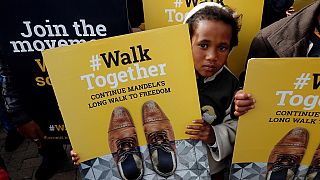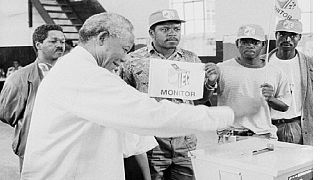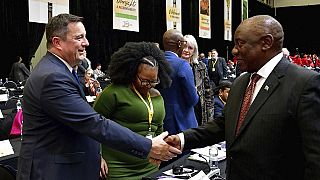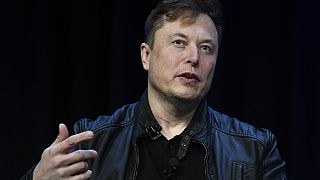South Africa
Nelson Mandela’s life was not one without strife. The trajectory of his political progress took him through a youth leader of the Africa National Congress (ANC) to being a leading member of the party, which still rules South Africa till date.
He would go on to be fielded as ANC’s presidential candidate in South Africa’s first democratically organized elections in 1994. He served a term in office and stood down even though he would have gone on to win a second term. That was in keeping to his word that he would only serve as a one term president.
Mandela’s political headaches started in 1955 when he was arrested on charges of treason, the trial lasted 6 years. At the end (in 1961), all accused persons including Mandela were acquitted and discharged.
A year later (11 January 1962,) Mandela was again arrested after leaving South Africa illegally. At this time he was out soliciting for support in respect of an armed struggle against the apartheid government.
Mandela had acquired an Ethiopian passport under the name, David Motsamayi, it was with that passport he left South Africa. Upon his arrest, he was held in Pretoria Prisons, later transferred to Robben Island and back to Pretoria.
In 1963, he was charged along with others for ‘sabotage.’ That set the infamous Rivonia trial into motion. The Rivonia Trial, one of the most significant political trials in South African history, led to a life sentence for the former South African leader. Mandela was sent to Robben Island where he spent 18 of his 27 years in prison.
It was during the trial that Mandela made a speech that electrified the world and became the manifesto of the anti-apartheid movement.
Mandela in his defense is quoted to have said: “I have fought against white domination, and I have fought against black domination. I have cherished the ideal of a democratic and free society in which all persons live together in harmony and with equal opportunities.
“It is an ideal which I hope to live for and to achieve. But, my lord, if it needs be, it is an ideal for which I am prepared to die.”
Nelson Mandela [1] Major Life Highlights and Family Life https://t.co/kEsg4Wynrd pic.twitter.com/cKXyTwRVsT
— africanews (@africanews) July 19, 2016
Among those Mandela was accused were, Walter Sisulu, Ahmed Kathrada, Govan Mbeki, Raymond Mhlaba, Denis Goldberg, Elias Motsoaledi and Andrew Mlangeni. They were convicted and the next day were sentenced to life imprisonment.
Goldberg was sent to Pretoria Prison because he was white, while the others went to Robben Island. Mandela’s mother died in 1968 and his eldest son, Thembi, a year later. He was not allowed to attend their funerals.
On 31 March 1982, Mandela was transferred to Pollsmoor Prison in Cape Town with Sisulu, Mhlaba and Mlangeni. Kathrada joined them in October the same year.
When Madiba returned to the prison in November 1985 after prostate surgery, he was held alone.
The final years in detention were at the Victor Verster Prison near Paarl, there he spent his last 14 months of imprisonment. He was released from prison in 1988 with Tuberculosis.
Throughout his imprisonment he had rejected at least three conditional offers of release.
In 1991, he replaced Oliver Tambo as ANC chief and transited from ‘armed’ stage of the struggle when he entered talks with the apartheid government to end minority rule.
In 1993, he and President FW de Klerk jointly won the Nobel Peace Prize and on 27 April 1994 he voted for the first time in his life. He was subsequently sworn in (10 May 1994) as first black president of the rainbow nation.
NOTE: This article was originally published on July 20, 2016



![Nelson Mandela [Part 2 of 3] His politics, apartheid and prison life](https://static.euronews.com/articles/339093/400x225_339093.jpg)

![Nelson Mandela [Part 1 of 3]: Major Life Highlights and Family Life](https://static.euronews.com/articles/338985/320x180_338985.jpg)








Go to video
Former South African deputy president David Mabuza dies at 64
01:04
South Africa: ANC partner quits key govt initiative as new spat hits coalition
Go to video
African gut study reveals urbanization threatens microbial diversity
Go to video
Families grapple with life in the wake of the Israel-Iran Conflict
01:35
Edgar Lungu's family condemns court decision to stop private burial in South Africa